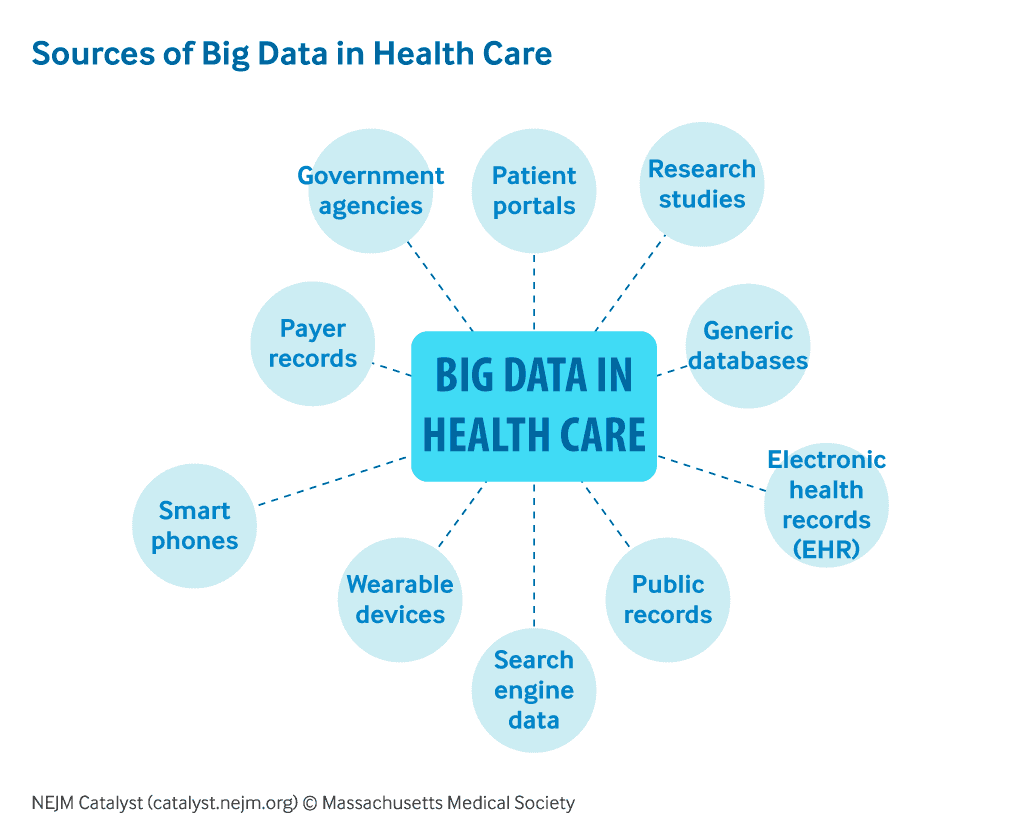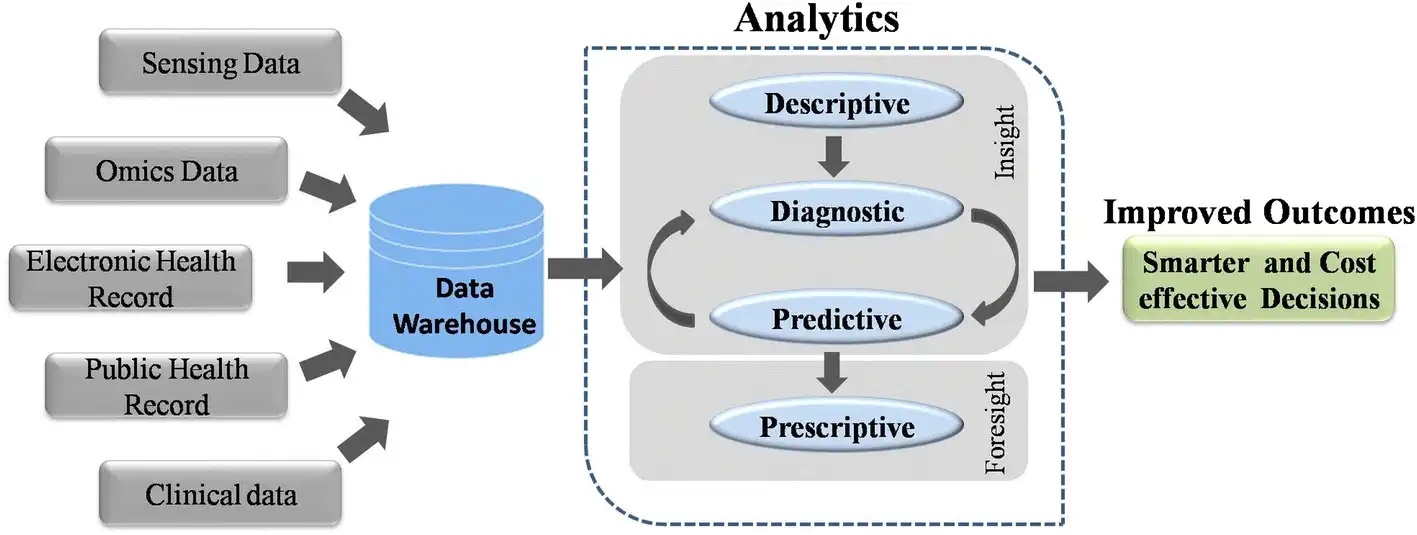Deploying efficient Kedro pipelines on GCP Composer / Airflow with node grouping & MLflow
Airflow is a commonly used orchestrator that helps you schedule, run and monitor all kinds of workflows. Thanks to Python, it offers lots of freedom…
Read moreWelcome to another Power of Big Data series post. In the series, we present the possibilities offered by solutions related to the management, analysis and use of huge amounts of data. The series aims to make people realize how much Big Data is needed by modern business, because in the era of widespread digitization, almost everything is based on data generation, management and analysis. Without these functions, it is difficult to talk about a modern approach to business. So far there have been three parts of the series, you can check them below:
Today we will look at the possibilities that Big Data solutions provide to broadly understood healthcare. In this text we will touch on the main issues related to data in healthcare. We will talk in general about what Big Data for healthcare is, but also what data is generated and what solutions are used to analyze, manage and process them.
Like all other areas of life in developed countries, medical care is digitizing rapidly and using more and more modern technology. This brings huge benefits, but also challenges related to the maintenance of such a complex infrastructure, a significant part of which is the generated data. This is why we need solutions related to broadly understood Big Data solutions in order to efficiently and fully use the possibility of digitizing healthcare. Analytical platforms, MLOps platforms, cloud solutions supporting data management, Data Science solutions. All this is able to ensure optimal functioning of the modern healthcare system.

How Big Data solutions help the healthcare sector? Although there are many aspects of this support, they can be grouped into the most important areas - cost reduction and acceleration of processes. Let's take a closer look at these issues.
Cost reduction - imagine the enormous amount of data modern healthcare produces - and how many sources it comes from (just see the picture above). The very storage of them is already expensive, taking into account the number and diversity - you need to find appropriate places to store them, mark them in terms of date and type, but also availability (after all, many of them, as mentioned earlier, are confidential data, to which not everyone can have access). It seems impossible without well-chosen Big Data solutions, e.g. cloud architecture. Big Data solutions offer great possibilities in terms of data storage - coherently created infrastructures are able to bear the burden of acquiring and storing data from many sources in various formats, and they do it much faster than in the case of traditional digital solutions (not mentioning the times whendata was collected using only paper documents). Thus, the reduction of costs occurs both in terms of the ease of generating and providing access to data, as well as its storage. However, this is not all - acceleration of the processes, which will be discussed below, also helps to reduce costs.
Faster access to the necessary information, better control over inventory, allowing for the optimization of the resources and procedures used in treatments, all this allows, thanks to better information management, to reduce the costs of healthcare.
Processes acceleration - the second area in which well-chosen Big Data solutions have a huge impact on improving healthcare system. This time we are not talking about costs, but about effectiveness in helping people and saving human lives. Instant and easy access to patient information helps doctors to make faster decisions, streamlining the treatment process - and share hard cases with specialists from around the world. Thanks to the well-stored and analyzed data, it is easier to understand the problems of diseases, define the forms of treatment, and conduct the necessary research.
Real-time analytics tools allow to monitor thethe condition of patients and, for example, the development of an epidemic. Thanks to such analysis, it is easy to establish cooperation with other medical entities (e.g. cooperation between hospitals). Another example can be blood banks - thanks to quick information on supplies and their changes. Knowing which blood bank to collect blood from the required group can save the life of a patient who needs it on the spot.
Machine Learning models - with help of IoT data - make it possible to predict future events and thus prepare to take appropriate action before a problem even arises. We are talking about both diagnostics of individuals and patterns of potential epidemic development.

After the example given above, it can be seen how the implementation of Big Data tools helped a company from the healthcare sector to improve its operation through quick access and data analysis This facilitated not only the customer experience, but also taking care of the project, making instant business decisions and fighting anomalies - in this case identical to the problems.
Big Data is a great opportunity for the healthcare sector, an opportunity that should be seized as soon as possible, because not only business goals count here, but most of all human health and life. This is one of the best examples of how new technologies can work in the service of people.
Airflow is a commonly used orchestrator that helps you schedule, run and monitor all kinds of workflows. Thanks to Python, it offers lots of freedom…
Read moreEver felt overwhelmed by the flood of news about the latest technologies, tools, and trends in Data, AI, and ML? A new framework here, a revolutionary…
Read moreFeature Stores are becoming increasingly popular tools in the machine learning environment, serving to manage and share the features needed to build…
Read moreDuring my 6-year Hadoop adventure, I had an opportunity to work with Big Data technologies at several companies ranging from fast-growing startups (e…
Read moreStarting a company from scratch as first-time founders can be very challenging, but being active community members can make all the difference…
Read moreIn the "Power of Big Data" series, I will talk about the possibilities that Big Data solutions give to individual business sectors. It should be noted…
Read moreTogether, we will select the best Big Data solutions for your organization and build a project that will have a real impact on your organization.
What did you find most impressive about GetInData?